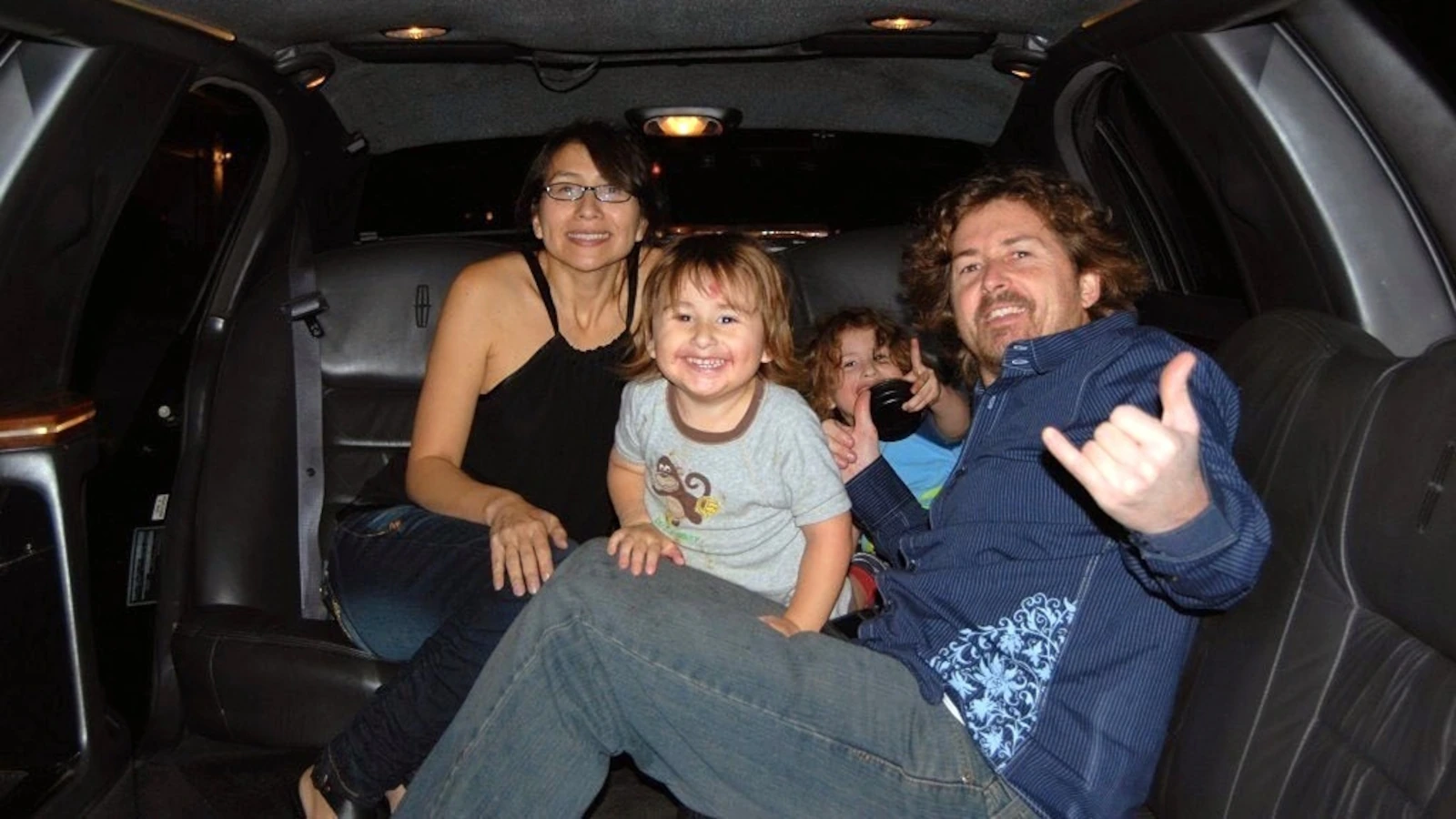
Summer and Joseph McStay seemed to be living the suburban American dream in early 2010, raising two young boys in the heart of Southern California. Then, the entire family disappeared without any explanation or goodbyes.
For years, investigators puzzled over how the couple and their children could vanish entirely.
A new “20/20” episode, “What Happened to the McStays?” airing Friday, Oct. 3, at 9 p.m. ET on ABC and streaming the next day on Hulu.
You can also get more behind-the-scenes of each week’s episode by listening to “20/20: The After Show” weekly series right on your 20/20 podcast feed on Mondays, hosted by “20/20” co-anchor Deborah Roberts.
With 4-year-old Gianni and 3-year-old Joseph Jr., the couple lived in a small apartment by the coast in San Clemente, California, where they would often go surfing and biking.
Jesi Silveria, a friend of the McStays, told “20/20” that the family really cared about each other and loved where they lived.
“As their relationship evolved, I saw that both of them really prioritized each other, number one, and then number two prioritized their children,” she said. “It brought them all their pleasures living on the coast and by the beach.”
However, the family outgrew their small beach bungalow and bought a house about 45 minutes away in the unincorporated community of Fallbrook. They had just begun home renovations when, on Feb. 4, 2010, they vanished without a trace.
The family’s white Isuzu Trooper was later located near the Mexico border, leading investigators to believe at the time that the family had gone to Mexico. That theory was strengthened when a grainy surveillance video seemed to capture the family of four crossing the border on the same day their car was abandoned. Without further leads, the case went cold for nearly four years.
In November 2013, a shocking discovery was made. After a motorcyclist spotted a small skull lying on the desert sand, four bodies were found in two shallow graves in the southwestern edge of the Mojave Desert. They were ultimately identified as the McStays.
Alongside the bodies, a sledgehammer was discovered buried in the earth. Investigators said it was used to murder the family.
It was unclear who would do this to the McStays. Charles “Chase” Merritt, a business associate of Joseph’s, had been a vocal supporter of finding the missing family, even mourning their disappearance in a 2014 interview on a cable news show.
However, that same year, police said they had arrested a suspect in their killings: Merritt.
According to investigators, something Merritt said about Joseph McStay in his cable news interview caught their interest.
“I’m most definitely the last person he saw,” he said.
Merritt said they met at a local Chick-fil-A on the day of the family’s disappearance. Authorities suggested that during that meeting Joseph may have fired Merritt from the decorative fountain business Joseph co-owned.
“We developed the theory that if there was a meeting at all, it was a very quick firing,” prosecutor Britt Imes told ABC News’ Matt Gutman in an exclusive new interview for “20/20.”
Prosecutors alleged Merritt owed Joseph $42,000, and he had written himself multiple checks from the business accounts, backdated to Feb. 4, 2010 — the day the family disappeared.
“The interesting thing is in an audit of Merritt’s financials, he didn’t have that $42,000,” Imes said.
Merritt was in a bad financial situation, according to Lt. Ryan Smith, a deputy with the San Bernardino Sheriff’s Department.
“We found that he was just horrible with his personal finances,” Smith told “20/20.” “He had a gambling issue where he would go to casinos and spend a lot of money.”
Furthermore, prosecutors alleged Merritt was extremely familiar with the area where the McStay family’s bodies were buried as he grew up near the gravesite. His phone was also near a cell tower near where the family was buried two days after they vanished, according to prosecutors.
“All we know is that his phone pinged on the 6th on a tower that overlooked the gravesite,” Imes said.
Throughout the trial, Merritt maintained his innocence, saying he was home with his girlfriend at the time of the murders. He also said that he had not been fired by Joseph and was not in dire financial straits at the time the family went missing.
Merritt’s defense attorneys maintained that he had permission to write the checks and refuted the claim that he had a gambling problem.
“He wrote checks to himself to buy materials,” defense attorney Raj Maline told “20/20.” “That was a common practice. Checks were backdated routinely.”
They also claimed the prosecution had the wrong person, pointing to a lack of concrete evidence and suggesting there was an alternate suspect.
However, Merritt’s defense was not enough, as the jury convicted him of four first-degree murder charges. He was sentenced to death in 2019, almost a decade after the family first went missing.
Since California has a moratorium on the death penalty, Merritt will remain incarcerated in a San Diego prison without parole, where he maintains his innocence to this day.
Merritt told ABC he is preparing a “habeas petition” to try to prove his innocence. In an exclusive new interview for “20/20” with ABC News’ Matt Gutman, Merritt explained that his petition would detail how he alleged that he was the victim of “prosecutorial misconduct, abuse of discretion, judicial error, ineffective assistance of counsel.”
He also rejected the cell phone tower evidence presented by prosecutors at trial and maintained his innocence.
“I didn’t murder that family. I am innocent. And I will be out one day,” he said.
Silveria told “20/20” that she will always remember the McStays at the beach, their joy frozen in her memory.
“I picture them at the beach playing in the sand — Joey’s surfing, the sun is out. They have their bicycles,” Silveria said. “That’s what I think of when I remember them.”



